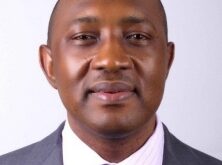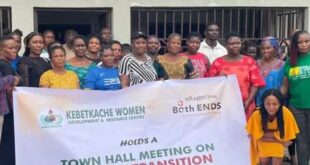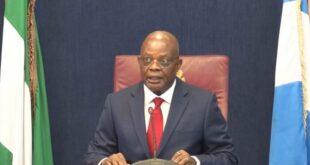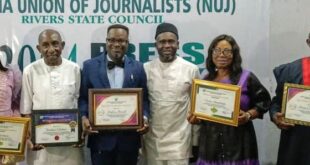By Godwin Chukwumaechi, Port Harcourt
Federal Government of Nigeria, in partnership with the International Fund for Africa Development (IFAD), on Monday began training stakeholders in the agriculture sector across the country on Social, Environmental and Climate Assessment Procedures (SECAP).
The 3-day training which is holding in Port Harcourt, the Rivers State capital aims at strengthening implementation of SECAP and to deepen its ownership across all key stakeholders of the Nigeria IFAD projects.
It is conducted under the IFAD Global Sustain training programme and highly relevant for the achievement of the objectives of the Nigeria IFAD portfolio, with all the agricultural programmes designed to take into account the resilience to climate change and promote inclusive social and economic programme, while minimizing risks to the environment, climate, and vulnerable groups.
Speaking at the opening of the training, Engr. Abiodun Sunny, National Project Coordinator, PON/NDDC/IFAD Assisted Livelihood Improvement Enterprise in Niger Delta (LIFE-ND), said that the training aligned with the national priorities of the Federal Government of Nigeria and the strategies of IFAD for supporting agri-food system transformation through sustainable and inclusive value chain development that supports linkages between smallholder farmer and all the key stakeholders of the eco-system (off takers, agro-industries, inputs and services providers, and so on).
“Through our cooperation in Nigeria, for each project we assess the impacts of our risks, of our investments and take the necessary measure to minimize the social, environment, and climate risks.
“In addition, we identify and seize opportunities that are win-win for achieving our collective objectives of food security and nutrition, inclusive economic growth, and income generation, gender equality, and job creation for women and youth”, he said.
He added that the CASP project, VCDP Project and LIFE ND are implementing several innovations along the line of the training, noting that one of such innovations supported by IFAD is Digital Green Farmer Chat- the AI-enabled digital extension assistant in four countries, India, Kenya, Ethiopia, and Nigeria and piloted in LIFE ND to increase the relevance, speed, and cost-effectiveness of extension systems to support farmer climate resilience.
“The partnership with NIMET is also an important pillar for the resilience of smallholder farmers with climate information and alerts”, he stressed.
According to Sunny, in addition to climate finance provided by IFAD for CASP and loan investments, IFAD/FGN projects have taken some innovative actions, namely; the deployment of solar boreholes and solar dryers, which has been a game-changer in addressing water and post-harvest challenges, and soil and water conservation innovations, such as Tassa pits and half-moon planting techniques that are being implemented to rehabilitate degraded lands.
Others are the introduction of biogas digesters, which has been a transformative practice in supporting rural energy needs while addressing waste management challenges and the use of technology to convert agricultural waste such as rice husks and cassava peels into compact, energy-efficient briquettes.
He said that the major take away from the training “is the determination as a project to ensure that LIFE-ND is fully compliant, socially, environmentally and also in terms of climate and adaptation, we’ve always moved along this line so we tend to see this as a wake up call to further intensify efforts in this direction and this we are willing and ready to do.
“I will also believe that this interaction will also further build capacity of staff across board at all states and also at the national level to pursue this agenda and ensure the beneficiaries of this project in the Niger Delta take full benefits of what it can provide for in terms of ensuring sustainability, environmentally, socially and also in terms of climate adaptation to all that that exists within the environment and what we do.
“Yes, the states of Rivers, Imo and Akwa Ibom are fully on board and as we move along there will be full integration within the project frame work, we are already doing what we call awareness sensitization and advocacy programme in these states to bring to the notice of the youths and women in these states that LIFE-ND has fully come on board and we thank NDDC for fulfilling its own part of the agreement by putting up a place and providing the funds to drive this project in these three states.
“LIFE-ND as a project, the envelope is $90-Million across the 9 states. IFAD is expected to provide $60,000,000 while NDDC is providing $30,000,000.
“The project is already in the 6th stage of Implementation and as far as IFAD is concerned and the FG and the states they’ve been able to fulfil their own conditions by bringing the funds on time but NDDC is just coming on board and that is why we have a slack in implementation in these three states. So the envelop is in totality $90-Million for the critical funders, IFAD and NDDC while the remaining $25-milliom will come in terms of counterpart funding and also social contributions from other stakeholders that are involved in the project”.
In an interview with journalists, Bukar Musa, Director Projects Coordinating Unit of the Federal Ministry of Agriculture and Food Security listed about 5 projects being funded by IFAD in the country in partnership with the federal government of Nigeria.
He explained that the target of the projects was to ensure “that the much expected food security, generation of employment, income and awareness to our rural farmers is being enhanced holistically. But you know, one component that is dragging the most achievement of these objectives is the current climate change issue”.
“The environmental issue becomes so important, you know, bearing in mind the essence, you know, weather that can’t be predicted. Where you don’t expect rain fall, you see rain fall in March, and where you expect rain fall, you see rain fall cessation. Especially the current flooding all over the country affected the already established farms affecting the socio-economic activities of our rural farmers.
“That’s why it is very necessary, since all the environmental aspects are being incorporated into the project development objectives to bring stake holders across all the projects, not only in Nigeria but also to some other places, in the African countries to brainstorm, to dialogue on the issues of climate, environmental changes with a view of preferring solutions to these issues and then, you know bringing down the effects as well as solutions to our rural farmers, so that they can take measures right at the farm level in order to mitigate the issues of climate change, such as, especially that of flooding and rain fall cessation”.
 PH Mundial – Port Harcourt Online Newspaper News Across The Region
PH Mundial – Port Harcourt Online Newspaper News Across The Region





